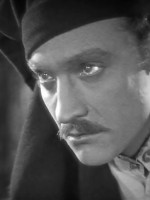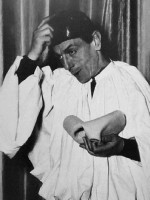Francesco Golisano is a Actor Italien born on 5 april 1929 at Rome (Italie)
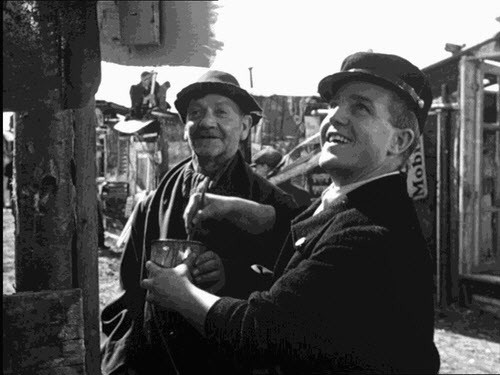
Francesco Golisano (June 25, 1930 in Rome, Italy – December 21, 1991 in Velletri, Italy ) was an Italian film actor.
He was an employee of the Post Office when film director Renato Castellani held auditions to appear in Under the Sun of Rome (1948). Golisano was chosen along with other young people of the street, and played the part of Geppa. This led to more work with filmmaker Giorgio Bianchi. In 1951, Golisano played his most famous for his role - the kind-hearted Totò in Vittorio De Sica's Miracle in Milan, which won the Palme D'Or at the Cannes Film Festival. He appeared in two more films in 1952.
After six films Golisano abandoned his acting career and retired to private life. He spent his last 20 years living in the town of Velletri in the province of Rome. He died in 1991, at age 61, of natural causes. He is survived by his two children, Patrizia (born in Rome) and Fabrizio (born in Velletri).
Una croce senza nome, de Tullio Covaz, Un ladro in paradiso, de Domenico Paolella et Il romanzo della mia vita, de Lionello De Felice.
Source : Wikidata
Francesco Golisano

Nationality Italie
Birth 5 april 1929 at Rome (Italie)
Death 6 august 1990 (at 61 years) at Rome (Italie)
Birth 5 april 1929 at Rome (Italie)
Death 6 august 1990 (at 61 years) at Rome (Italie)
He was an employee of the Post Office when film director Renato Castellani held auditions to appear in Under the Sun of Rome (1948). Golisano was chosen along with other young people of the street, and played the part of Geppa. This led to more work with filmmaker Giorgio Bianchi. In 1951, Golisano played his most famous for his role - the kind-hearted Totò in Vittorio De Sica's Miracle in Milan, which won the Palme D'Or at the Cannes Film Festival. He appeared in two more films in 1952.
After six films Golisano abandoned his acting career and retired to private life. He spent his last 20 years living in the town of Velletri in the province of Rome. He died in 1991, at age 61, of natural causes. He is survived by his two children, Patrizia (born in Rome) and Fabrizio (born in Velletri).
Biography
En 1948, Francesco Golisano est l'un des acteurs non professionnels sélectionnés par le réalisateur Renato Castellani pour son film Sous le soleil de Rome ; il lui confie le rôle de Geppa, le sans abri qui intègre la bande de Ciro après leur rencontre au Colisée. L'année suivante, les trois principaux acteurs de ce film, Oscar Blando, Liliana Mancini et Francesco Golisano sont engagés par Giorgio Bianchi pour son film Vent'anni. À deux autres reprises, en 1951, ce réalisateur fait tourner Francesco Golisano dans Il caimano del Piave et Porca miseria. Cette même année, Vittorio De Sica le choisit et lui offre l'interprétation de Totò, le rôle principal de son conte poétique Miracle à Milan. La performance de Francesco Golisano lui vaut d'être l'un des cinq nommés au British Academy Film Award du meilleur acteur étranger 1953, remporté par Marlon Brando pour son rôle d'Emiliano Zapata dans Viva Zapata !. Sa carrière cinématographique se termine en 1952 où il est au générique de trois films,Una croce senza nome, de Tullio Covaz, Un ladro in paradiso, de Domenico Paolella et Il romanzo della mia vita, de Lionello De Felice.
Usually with
Filmography of Francesco Golisano (9 films)
Actor

L'eroe sono io (1952)
Directed by Carlo Ludovico Bragaglia
Genres Comedy
Actors Renato Rascel, Delia Scala, Marisa Merlini, Arturo Bragaglia, Enzo Biliotti, Francesco Golisano
Roles Giuseppe
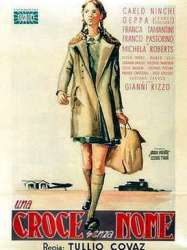
Una Croce senza nome (1952)
Actors Carlo Ninchi, Francesco Golisano, Gianni Rizzo, Giovanni Grasso, Silvio Bagolini, Enzo Cerusico

Un Ladro in paradiso (1952)
Directed by Domenico Paolella
Genres Comedy
Actors Nino Taranto, Francesco Golisano, Eduardo De Filippo, Hélène Rémy, Filippo Scelzo, Enzo Turco
Roles Gennarino
Rating60%





Vincent and Gennaro live by their wits and petty theft in the city of Naples. On Christmas Eve, Gennaro steals a service of glasses and gives it to his girlfriend Nannarella, a poor and honest seamstress . Unfortunately, it was discovered, and Gennaro and Vincenzo are arrested. While it is recommended to St. Joseph, it seems that they shower them with a gesture of their goodwill. Released from jail after three months full of good intentions, they are forgiven and Nannarella resumes contact with Gennaro. Since Vincent and Gennaro cannot find honest work, the two are forced to steal more.
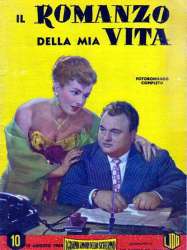
Il romanzo della mia vita (1952)
Directed by Lionello De Felice
Genres Drama, Comedy, Musical, Romance
Actors Antonella Lualdi, Vittorio Sanipoli, Giulietta Masina, Francesco Golisano, Enrico Glori, Guglielmo Inglese
Roles Piero
Rating64%






Il caimano del Piave (1951)
Directed by Giorgio Bianchi
Genres Drama, Romance
Themes Spy films, Political films
Actors Gino Cervi, Gina Falckenberg, Milly Vitale, Frank Latimore, Francesco Golisano, Carlo Croccolo
Roles Giacomo Ferrin, aka Ciampin
Rating50%





Après ses études, Lucilla di Torrebruna revient à San Donà di Piave, où son père, colonel de cavalerie, va épouser Hélène en secondes noces. Voyant le père heureux, la fille endure l'hostilité de sa belle-mère.
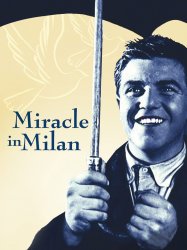
Miracle in Milan (1951)
, 1h40Directed by Vittorio De Sica, Cesare Zavattini
Origin Italie
Genres Drama, Science fiction, Comedy, Comedy-drama, Fantasy
Themes Political films
Actors Francesco Golisano, Emma Gramatica, Paolo Stoppa, Guglielmo Barnabò, Alba Arnova, Brunella Bovo
Roles Totò
Rating75%





This fantasy tale tells of Totò who, found in a cabbage patch, is adopted by Lolotta, a wise and kind old woman. When Lolotta dies he moves to an orphanage. At eighteen Totò (Francesco Golisano) leaves the orphanage and ends up in a shantytown squatter colony on the outskirts of Milan.
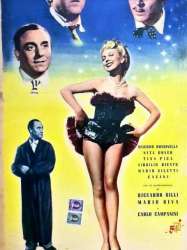
Porca miseria (1951)
Directed by Giorgio Bianchi
Origin Italie
Genres Comedy
Actors Carlo Campanini, Isa Barzizza, Riccardo Billi, Giacomo Rondinella, Mario Riva, Nyta Dover
Roles Giacomino
Two friends, Giacomino and Carletto, have no job and no money and are looking for a job, or any device that will help them to meet expenses and especially will give them the opportunity to fill their stomachs. After several misadventures, they seem reduced to despair, but a ray of hope appears on the horizon. The two learn of a variety show they could participate in, if only they had a companion, a girl with a nice pair of legs. Their early searches are unsuccessful, but then their salvation appears in the guise of a poor and beautiful roommate whom the landlady kicked out for not paying the rent. The trio is hired, but because of the ineptitude of Jack, the show ends in disaster and the two friends, hungrier than ever, must flee with their new partner. In the course of their further adventures, the two friends fall in love with the girl and each believes he is the favorite. They are both greatly disappointed when they come to understand that another, third man, is the one who makes the girl happy.
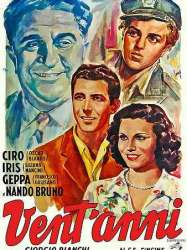
Vent'anni (1949)
, 1h35Directed by Giorgio Bianchi
Genres Drama
Actors Francesco Golisano, Nando Bruno, Checco Durante, Marcello Mastroianni, Lamberto Maggiorani
Roles Geppa
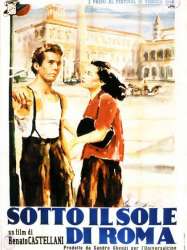
Under the Sun of Rome (1948)
, 1h44Directed by Renato Castellani, Marino Girolami, Franco Brusati
Origin Italie
Genres Drama, Comedy
Actors Francesco Golisano, Alberto Sordi, Luisa Rossi, Tano Cimarosa
Roles Geppa
Rating68%





À Rome, la signature de l'Armistice de Cassibile, promet une fin de la Seconde Guerre mondiale assez proche.
 Connection
Connection
